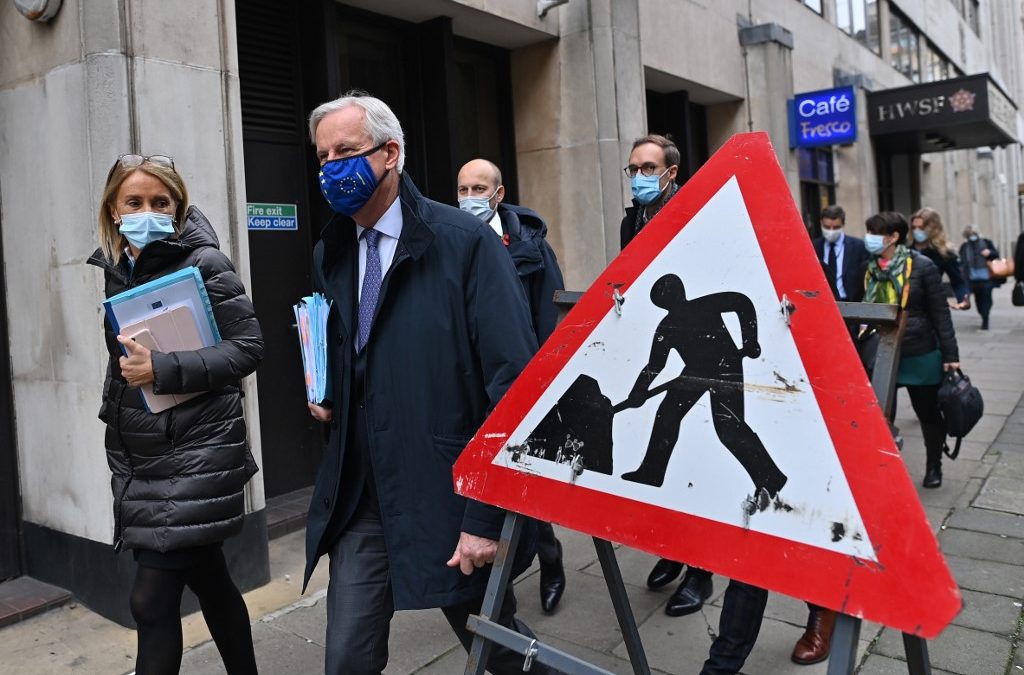Sue Wilson of Bremain in Spain weighs up the latest on Brexit negotiations. If you’re following the UK/EU Brexit negotiations, you’re probably suffering from a severe case of déjà vu. Over the last days, weeks and months, we’ve heard repeated claims that lose some of their potency with each utterance. “Time is running out”, a deal is “difficult” but “doable”, and both sides are working hard to secure the deal they really want.
Throughout the endless months of talks – and talks about talks – the difference in tone between the EU and UK has been obvious. The approaching deadline has not dampened the UK’s bullish stance or the EU’s air of calm professionalism.
This week’s latest (last?) round of talks in Brussels began with a series of tweets by the UK’s lead negotiator, Lord David Frost. On Sunday evening, he mentioned that some progress had been made, but ended on a pessimistic note.
His Twitter thread concluded:
4/4 But we may not succeed. Either way, as the Prime Minister @BorisJohnson made clear on 16 October, people and businesses must prepare for the change that is coming on 31 December, most of which happens whether there is a deal or not.
— David Frost (@DavidGHFrost) November 15, 2020
The EU’s chief negotiator, Michel Barnier, clearly had a different outlook on Monday morning, tweeting that the EU “remains determined, patient, respectful. We want our future cooperation to be open but fair in all areas”. Considering the games that the UK government has played – such as threatening to break the existing legal agreement – the EU’s patience must have been tested many times over.
Despite some progress, including the preparation of hundreds of pages of legal text, the same issues are causing the biggest problems in the negotiations. A few weeks ago, there seemed some willingness to compromise over one of the most contentious issues – fisheries.
However, latest reports suggest that both sides are still “miles apart”, despite the EU offering access to its energy market in return for access to fishing waters. That arrangement is worth more to the UK than fishing, which represents just 0.1percent of GDP. Clearly, the UK’s position here is political, not economic. By contrast, the services sector, which contributes 80percent to UK GDP, has largely been ignored throughout the Brexit debate.
You can read the full article over at The Local.






